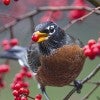
Lost birds and mammals spell doom for some plants
In one of the first studies of its kind, researchers have gauged how biodiversity loss of birds and mammals will impact plants’ chances of adapting to human-induced climate warming.

Lost birds and mammals spell doom for some plants
In one of the first studies of its kind, researchers have gauged how biodiversity loss of birds and mammals will impact plants’ chances of adapting to human-induced climate warming.

Four faculty members and their collaborators win Advanced Research Projects Agency for Health seed grants.

Barney Graham '75 named a Time Hero of the Year for developing COVID-19 vaccine
Rice alumnus Barney Graham, a renowned virologist and deputy director of the Vaccine Research Center within the National Institutes of Health (NIH), has been named a 2021 Hero of the Year by Time magazine for his work developing the groundbreaking Moderna COVID-19 vaccine.
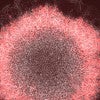
NSF grant supports study of cells’ early decisions
Rice University receives National Science Foundation support to build a model of cell differentiation during the earliest stage of life. The model could help improve researchers’ ability to direct stem cells to a given fate.

People, papers and presentations for Oct. 11, 2021
People, papers and presentations for Oct. 11, 2021
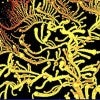
NSF extends Physics of Living Systems network at Rice
The NSF awards nearly $3 million to the Center for Theoretical Biological Physics to continue its leadership role in the Physics of Living Systems graduate research network.

Grant backs effort to build useful bacterial colonies
Rice scientists have won a grant to advance the development of custom-designed microbial colonies for a variety of applications.
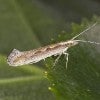
Crop-eating moths will flourish as climate warms
Climate change in this century will allow one of the world's costliest agricultural pests, the diamondback moth, to both thrive year-round and rapidly evolve resistance to pesticides in large parts of the United States, Europe and China where it previously died each winter, according to a study by U.S. and Chinese researchers.
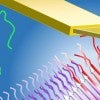
Docking peptides, slow to lock, open possible path to treat Alzheimer’s
Researchers have identified a possible “Achilles’ heel” in the frustration of amyloid beta peptides as they dock to the fibrils that form plaques in patients with Alzheimer’s disease.
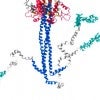
Sim shows how COVID virus infects cells
A simulation shows the complicated mechanism by which the SARS-CoV-2 virus may infect cells, leading to COVID-19.
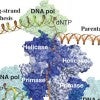
Rice lab dives deep for DNA’s secrets
Structural biologist Yang Gao receives a five-year National Institutes of Health grant to detail how complex protein chains replicate DNA and fix errors on the fly. What they find could help treat genomic disease, including cancer.

CPRIT grant establishes Genetic Design and Engineering Center
Rice faculty members led by bioengineer Gang Bao have been awarded a $4 million CPRIT grant to establish the Genetic Design and Engineering Center.
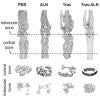
Rice, Baylor win defense grant to advance metastasis study
Rice University chemist Han Xiao and biologist Xiang Zhang at Baylor College of Medicine have won a $2.3 million Department of Defense grant to expand their efforts to halt bone cancer metastasis.

10 winners at IBB Summer Undergraduate Research Symposium
Posters by 10 summer interns were the best at this year’s IBB Summer Undergraduate Research Symposium.

Scientists seek details of cancer’s evolutionary tree
Rice University computer scientists will take full advantage of new technology to sequence the genome of a single cell to decode mysteries contained in tumors.